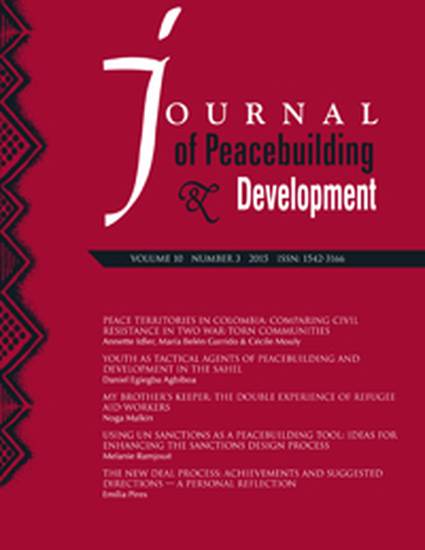
Article
Reconstructing ‘Traditional’ Justice from the Outside In: Transitional Justice in Aceh and East Timor
Journal of Peacebuilding & Development
(2014)
Abstract
Transitional justice programmes in post-conflict Aceh, Indonesia, and East Timor are often described as acts of bottom-up reconciliation, highlighting both the community focus of the programmes and the inclusion of indigenous justice practices (adat). Traditionally resonant forms of transitional justice are lauded over internationally orchestrated programmes for their presumed legitimacy and efficacy in promoting peacebuilding and reconciliation. This framing ignores the substantial and largely unrecognised role played by external actors in the revitalisation, reconstruction, and in some cases implementation of traditional practices in the transitional justice and peacebuilding programmes in Aceh and East Timor. Moreover, although the use of traditional practices was supposed to improve the effectiveness of the programmes, the reconstruction of ‘tradition’ by external actors created some new legitimacy and implementation problems. The cases highlight how the instrumentalisation of traditional practices in transitional justice programmes may solve some post-conflict dilemmas but create others.
Keywords
- Transitional justice,
- Reconciliation,
- Peacebuilding,
- Adat,
- Indigenous justice,
- Indonesia,
- East Timor
Disciplines
Publication Date
September 16, 2014
Publisher Statement
Published by Journal of Peacebuilding & Development DOI: 10.1080/15423166.2014.937654
Citation Information
Cynthia Horne. "Reconstructing ‘Traditional’ Justice from the Outside In: Transitional Justice in Aceh and East Timor" Journal of Peacebuilding & Development Vol. 9 Iss. 2 (2014) Available at: http://works.bepress.com/cynthia_horne/3/
